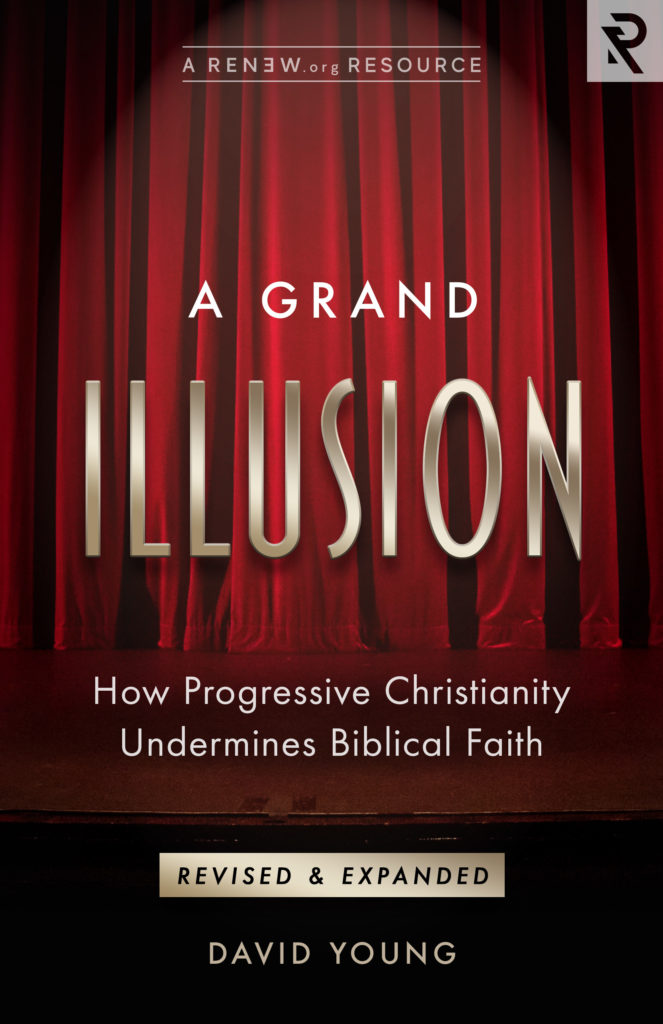
Rhett, Link, & the Danger of Duplicitous Faith
(Here’s Part 1, Part 2, and Part 3 in this series.)
While both Rhett and Link’s stories emanate a duplicitous dual existence, Link’s story highlights the dissonance. These were men who grew up in the church, were involved in Cru throughout college, and eventually raised funds so that they could become campus missionaries—a journey that parallels my own life.
Somewhere along the way, or perhaps all along the way, both Rhett and Link had doubts. Speaking as an outside listener, it certainly appears as if, for some reason, they didn’t voice those doubts.
While Rhett and Link and I joined Cru several years apart, I remember the application process being extensive and asking several probing, intimate questions—questions that probably would have hit on Rhett and Link’s doubts. However, those questions are only effective if they are answered honestly.
Whatever the reasons though, these men ended up on staff in the midst of a crisis of faith. I don’t know how aggressive and vocal they were in communicating their doubts, but their “anti-testimonies” lead me to conclude that they kept their struggle hidden.
Link even went so far as to avoid investigating his doubts. Speaking about that time, he says, “I kept those [spiritual] questions at bay until after we left staff” (Link’s Spiritual Deconstruction, YouTube, 42:30).
Yet even after leaving staff and diving deeper into doubt with Rhett, Link was the music leader at his church. He admits that while leading worship, he would close his eyes because he couldn’t find anything spiritually (L.S.D., 47:15).
Likewise, Rhett was leading a weekly Bible study and preaching occasionally even as his faith was eroding. The duplicity is staggering.
If it seems like I’m being hard on Rhett and Link—and I am—rest assured that this narrative is about to take a sharp turn and get very uncomfortable for me.
I left staff with Cru for a variety of reasons: I hated raising financial support, I didn’t see my free spirit fitting with a major organization, and I didn’t sense God calling me to stay. Still there was another reason, a reason I didn’t tell anyone about.
I’d had a pornographic addiction since I was in high school. Like a lot of addictions, it was a battle. Sometimes I won, and sometimes I lost. There were periods of victory and periods of defeat. Going into my internship with Cru, I was in the midst of my longest clean stretch up to that point (I want to say it was fourteen months). I was hopeful that this was my breakthrough, and to a degree, I think it was.
Then maybe half way through my internship, I began that slippery descent—starting with a second and third glance, moving into lust, and devolving further and further into sin. And I didn’t tell anyone.
As Link did, I felt the duplicity; to use his words, “I had this nagging sense of being hollow” (L.S.D., 38:18).
I had raised support and seen God provide financially in dramatic fashion at the eleventh hour. All these people and churches had chosen to give me $37,500 in order for me to be a professional Christian, and I failed. Not only that, I ignored the Biblical admonition to “confess your sins to each other and pray for each other so that you may be healed,” and instead kept it to myself (James 5:16).
So I finished my internship and didn’t join staff.
Thankfully, I was able to place myself in a situation where I was able to go without the internet and essentially detox, which helped put me back on a path of recovery. God was also gracious in highlighting for me over and over again how he provided all that financial support knowing full well that I would fail, that he loved and invested in me regardless, and that those who are forgiven much, love much.
Still I wonder how my trajectory might have changed if I had taken God at his word, if I had confessed to my Cru team leader or one of my co-workers instead of keeping the fight to myself.
I wonder the same thing for Rhett and Link.
I’m not saying they didn’t ever share their doubt—they did here or there—but the overall narratives they provide indicate that they hid most of their struggle, even from their wives.
Rhett didn’t tell his wife about his deconstruction as it was happening. He would let it build to this point of critical mass; then he would share, and his wife would cry (Rhett’s Spiritual Deconstruction, YouTube, 39:32). Then this pattern would repeat.
Link acknowledges something similar; he and Rhett were having these discussions, but he wasn’t taking them home because he didn’t want to scare his wife (L.S.D., 44:10).
As a husband, I find this to be troubling.
My wife can handle the truth, and I don’t feel the need to hide the way I feel from her. Not only that, I specifically chose her to be my wife knowing that she is someone I can trust, someone whose level of intelligence rivals my level of intelligence, someone I can come to for counsel and insight and perspective.
Not only were Rhett and Link withholding from their wives, they were depriving themselves of their spouse’s counsel and admonition.








